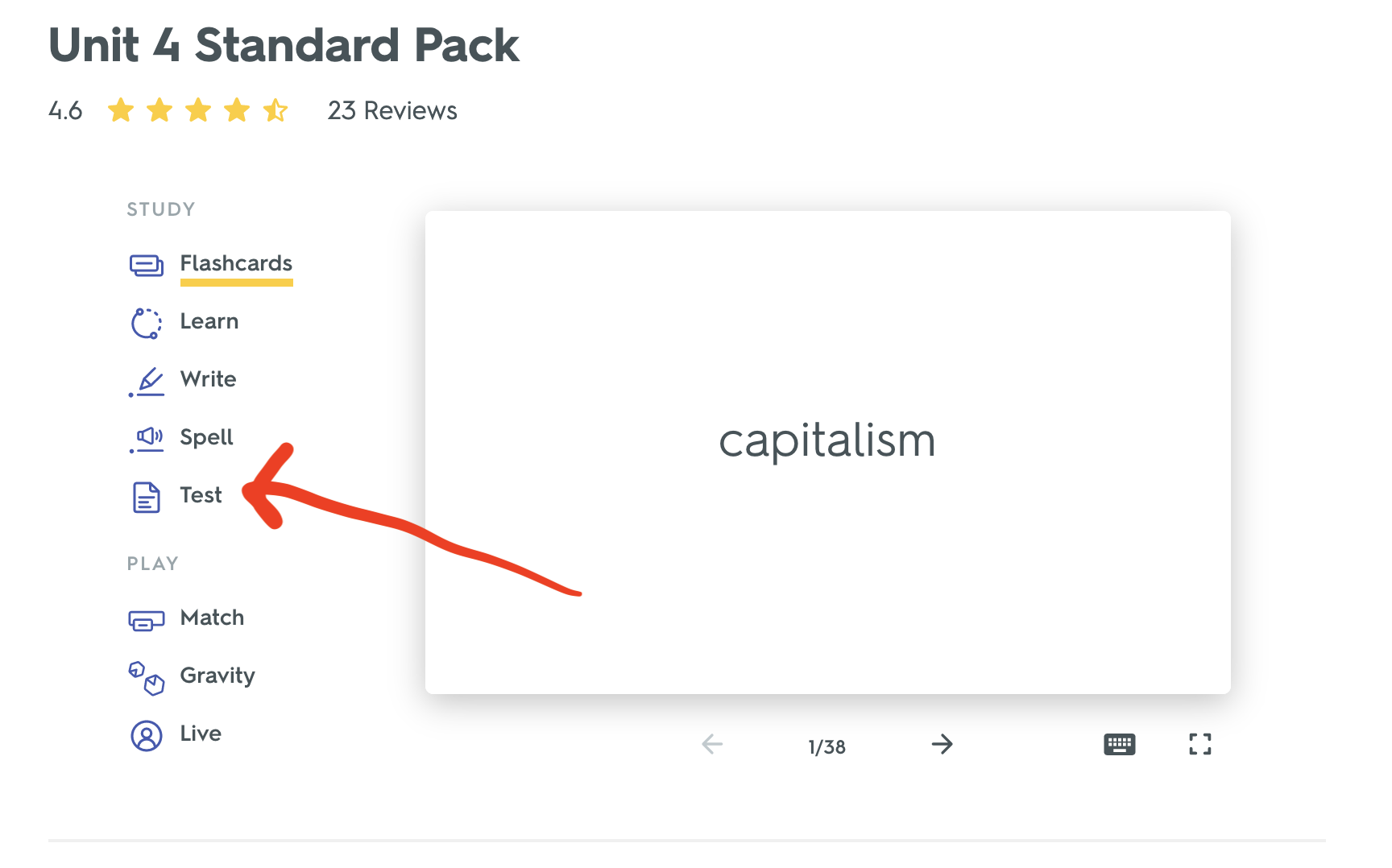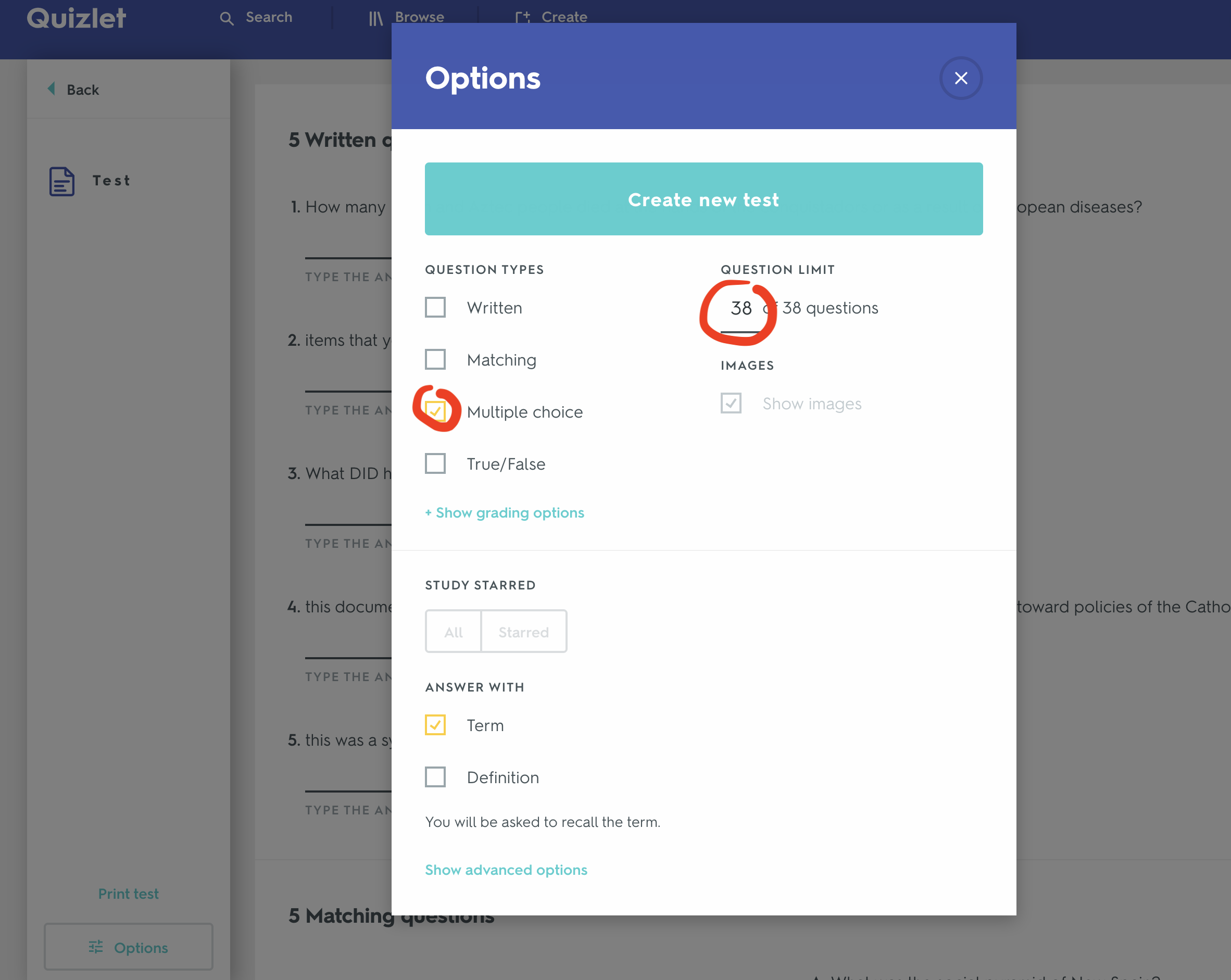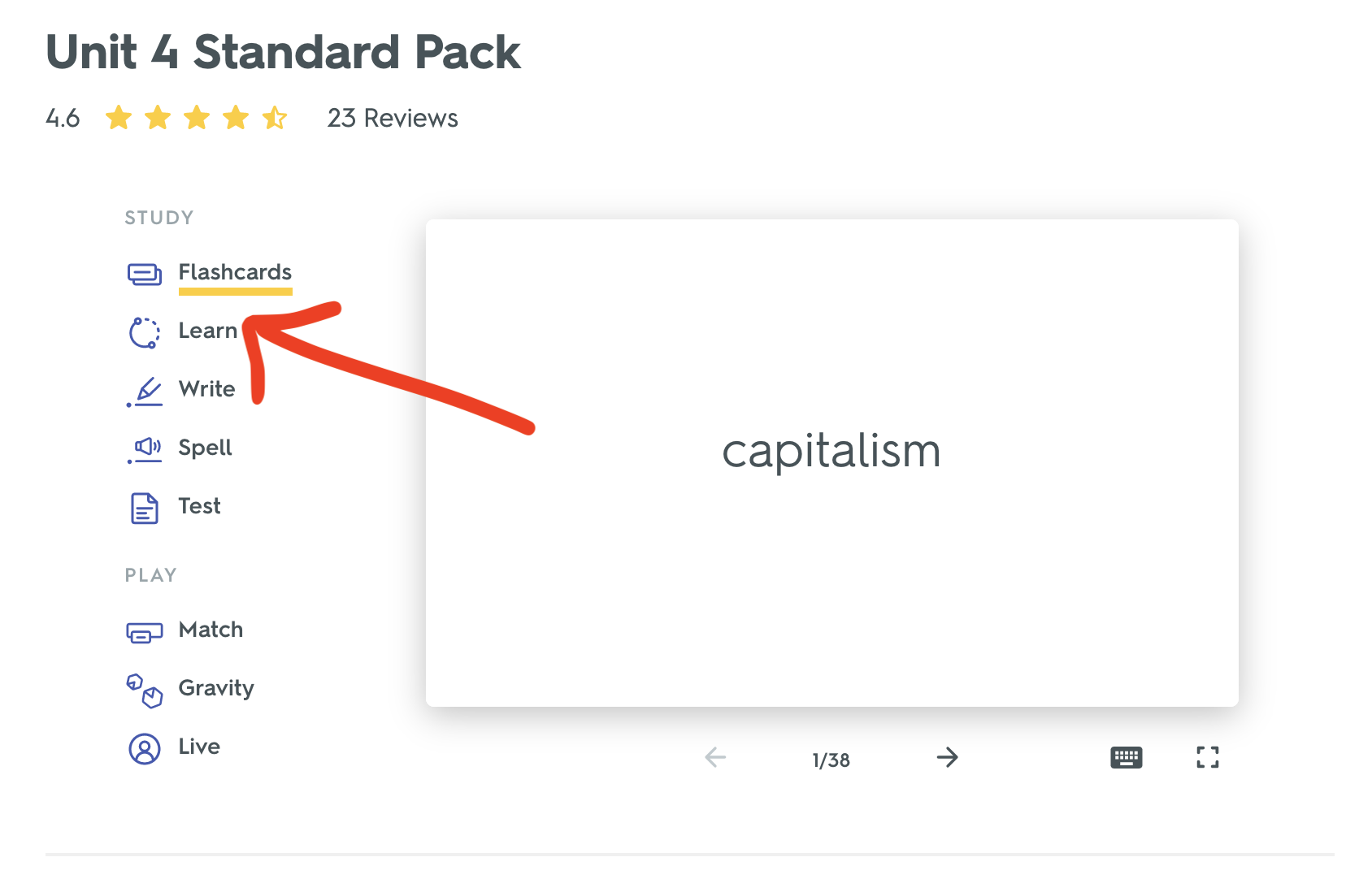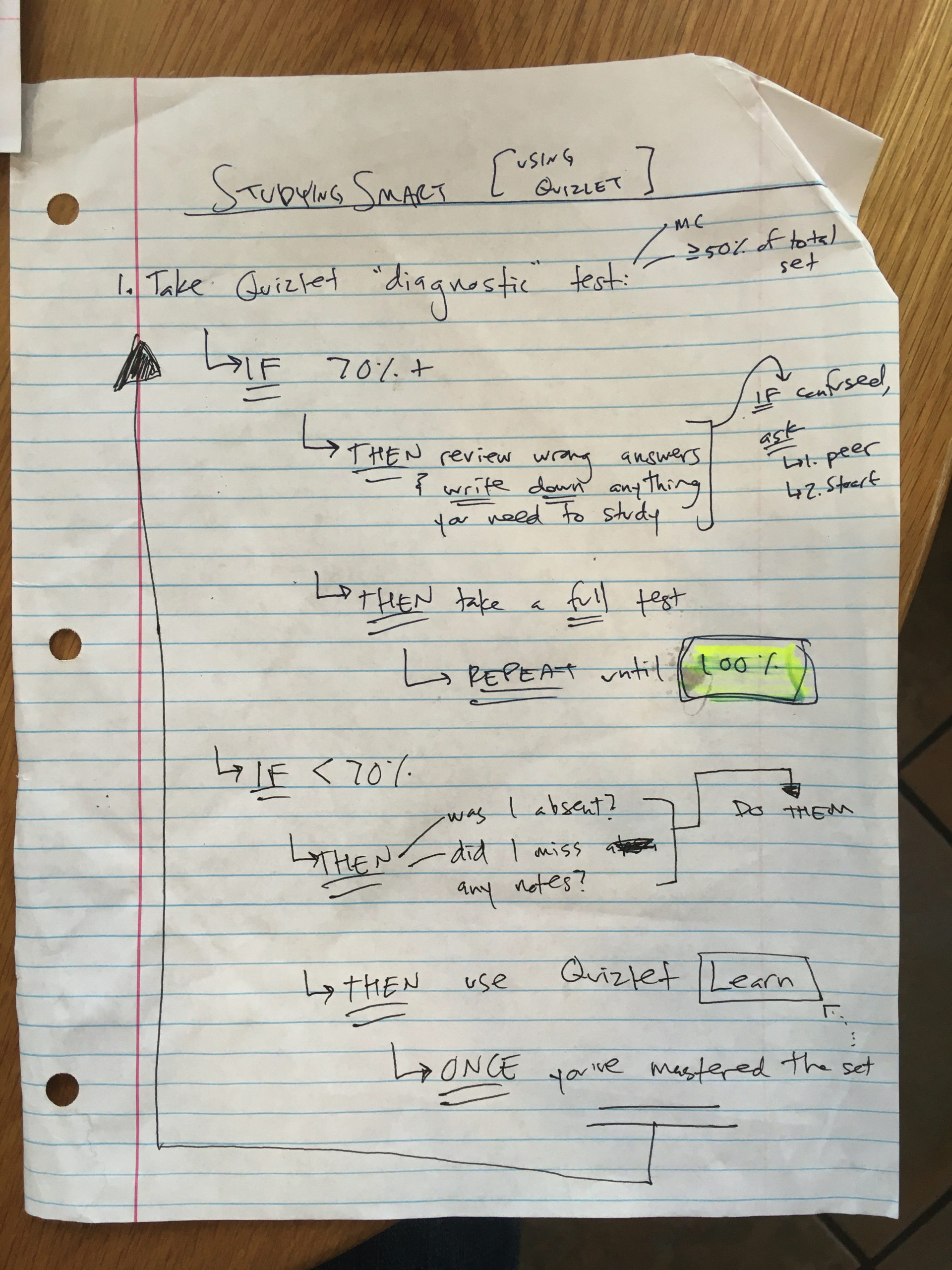Early this school year, I taught my students to use Quizlet for mastering key knowledge.
A bit of context: my curriculum assesses both knowledge and skills. I assess skills like argumentation via pop-up debates, essays, and short-answer questions. I assess knowledge through short-answer questions and multiple choice questions. (Now if you’re thinking “all multiple choice = bad” or “real life doesn’t have multiple choice questions,” I love you, but I probably can’t help you grow until you drop the dogma and think instead about what learning is and how we can most effectively and sustainably measure it. There is nothing inherently “soul-crushing” about it.)
We use Quizlet to organize the essential knowledge — such as terms, facts, people, concepts, and statistics — for each unit. The Quizlet is directly aligned to the knowledge recall assessments that our curriculum calls for.
Step One: Take a Quizlet “diagnostic” test.
I teach them what the word diagnostic means and why it makes sense here because we’re going to use this practice test to “diagnose” our retrieval ability for key knowledge in this unit. I show them how to set up a diagnostic test — here’s an example:


Upon taking this diagnostic test, they will get a percentage score.
Step Two: Do one of the following.
IF you scored 70% or better,
THEN review all wrong answers, write down anything that’s confusing you or that you need to study. IF you’re confused about anything you got wrong, ask a peer or Mr. Stuart.
THEN take another diagnostic test; REPEAT until you achieve 100%. Once you achieve 100%, move into other learning work (e.g., digging deeper into supplementary reading materials, completing this week’s article of the week, etc.).
IF you scored less than 70% on your diagnostic,
THEN first ask, “Was I absent during days where we learned any of these concepts? Did I miss any notes?” If so, get what you need to complete this learning.
THEN, once you confirm that you’ve had a chance to learn all of the material, use Quizlet’s “Learn” function to master the retrieval of this unit’s core information.

THEN, once you’ve mastered all the terms in the set, go back to Step One and take another diagnostic test.
The Results of This Process
For our first unit’s knowledge assessment, my students averaged a 71%. During the second unit, I taught this process to students by sitting down at my document camera and having them take down the notes I was writing as I explained to them what our strategy for studying smart was going to be.

Nothing fancy — just straightforward, guided note-taking, direct instruction on how to effectively and efficiently move information into long-term memory and make that information easily retrievable.
For the units since that first one, the average on tests has been 85% or better.
My point is not that I am a great teacher. I promise you, I am just a good one like millions of others. My point is that the research is right: learning strategies act as multipliers of student effort, and when taught and practiced efficiently in class, with no bells and no whistles, they yield greater student success, which improves student motivation (via efficacy) long-term.
Leave a Reply